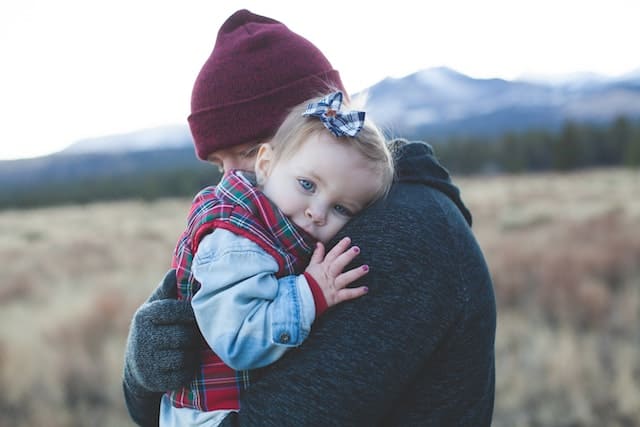Bringing a newborn into the world is filled with joy and learning. As a new parent, you will quickly become familiar with the unique needs and challenges that come with caring for your little one. When caring for a newborn, being attentive to their needs is part of responsive parenting, which helps build trust and security. One important aspect of infant care is burping, a simple technique that helps prevent discomfort and colic. In this guide, we will explore why burping matters, learn the signs of trapped gas, and different techniques to burp your baby. This guide will give you the confidence and knowledge you need to ensure your baby’s comfort.

Why Burping Matters
Burping is more than just a routine task. It is an important part of caring for your baby’s delicate digestive system. During feeding, babies swallow air along with their milk, which can lead to gas buildup and discomfort. Proper burping helps release trapped air, reducing the likelihood of colic, fussiness, and spit-up. Regular burping improves sleep quality, as a content baby is more likely to settle down for longer, peaceful naps.
Here are some key reasons why burping is important:
1. Reduces Discomfort: Trapped gas can cause bloating and pain, making your baby irritable. Burping helps ease this discomfort.
2. Prevents Spit-Up: Releasing air reduces the likelihood of your baby spitting up after feeding.
3. Improves Sleep: A comfortable baby is more likely to settle down for longer, peaceful naps.
4. Makes Feeding Better: Regular burping ensures your baby can feed more effectively and comfortably.
Signs Your Baby Needs to Burp
Before diving into the techniques, it is important to recognize when your baby needs to burp. Here are some common signs of trapped gas:
Fussiness During or After Feeding: If your baby seems irritable or cries during or after feeding, they may need to burp.
Arching Their Back: This can be a sign of discomfort caused by gas.
Pulling Away from the Bottle or Breast: If your baby suddenly stops feeding and seems uncomfortable, they may need a burp break.
Spit-Up: Frequent spit-up can indicate that your baby has swallowed too much air.
Step by Step Guide to Burping Your Baby
 |  |
|---|
1. Choose the Right Position:
Select a comfortable and safe place for burping your baby. You can choose from a few different positions:
Over the Shoulder:
Hold your baby upright with the head resting on your shoulder
Pat the back with your other hand
Tip: Cupping your hand slightly is gentler than a flattened palm
Sitting on Your Lap:
Sit your baby on your lap supporting the chin and chest with one hand
Rub or pat the back with your other hand
Tip: Use repeated, gentle pats on your baby’s back
Face-Down on Your Lap:
- Rest your baby faced down on your lap and gently rub or pat the back
Tip: Keep a cloth nearby in case your baby spits up

Tip: Fathers are also capable of burping their babies; it is not a task exclusive to women. Dads can use moments like this to build a strong bond with their children and offer support and comfort to their spouses.
2. Timing is Everything:
Burp your baby during and after feeding. If you are breastfeeding, try switching breasts midway through to ensure your baby gets a chance to burp. For bottle-fed babies, pause periodically during the feeding to allow for burping.
Bottle feeding is usually not advisable especially if the mother is able to breastfeed.
3. Be Patient and Gentle:
Babies have delicate bodies, so it is important to be patient and gentle while burping. Use soft pats or gentle rubs on the back, applying slight pressure to help release trapped air. Avoid excessive force, as this can lead to discomfort.
4. Listen and Observe:
As you burp your baby, listen for small burps or gurgles. These are signs that air is being released. Additionally, pay attention to your baby’s body language. If they seem more relaxed and content after burping, you are on the right track.
5. Experiment with Different Techniques:
Every baby is unique, so do not be afraid to try different burping techniques to find what works best for your little one. Some babies may respond better to a gentle circular motion on their back, while others might prefer a firmer pat.
6. After-Burping Care:
Once your baby has successfully burped, give them a few moments to settle before continuing with feeding or placing them down to sleep. This helps ensure that they are comfortable and less likely to experience discomfort.
Tips for Success
- Stay Calm and Relaxed: Your baby can sense your emotions, so staying calm will help them feel more at ease.
- Use a Burp Cloth: Keep a cloth handy to catch any spit-up during burping.
- Be Consistent: Make burping a regular part of your feeding routine to prevent gas buildup.
- Involve Dad: Burping is a great way for fathers to bond with their baby and support their partner. Burping sessions provide valuable opportunities for parent-child bonding and can strengthen your connection with your baby.
FAQs About Infant Burping
Q: How long should I try to burp my baby?
A: Most experts recommend burping for 2-3 minutes at each burping session. If your baby has not burped after this time, they may not need to or will do so naturally later.
Q: Can I skip burping if my baby falls asleep during feeding?
A: It is still beneficial to attempt a gentle burp, as trapped air can cause discomfort that might wake your baby later. Use very gentle motions to avoid fully waking them.
Q: Is it normal for my baby to spit up while burping?
A: Yes, small amounts of spit-up during burping are completely normal and often called “happy spitting.” If spit-up is forceful, excessive, or seems to cause discomfort, consult your pediatrician.
Q: Do formula-fed babies need more burping than breastfed babies?
A: Generally, yes. Bottle-fed babies typically swallow more air during feedings and often benefit from more frequent burping breaks.
Q: At what age can I stop burping my baby?
A: Most babies outgrow the need for structured burping between 4-9 months, when they become more mobile and can position themselves to release gas naturally. Follow your baby’s cues. If they show fewer signs of discomfort without burping, you can gradually phase it out.
Conclusion
Burping is an essential skill for any new parent. By following our step-by-step guide and tuning into your baby’s cues, you will be able to prevent discomfort and keep your baby content and happy. The more comfortable the baby feels, the more cheerful they are. Remember, every baby is different, so be patient and flexible as you explore various burping techniques. With practice and care, you will become good at burping your baby and giving them the best start in life.